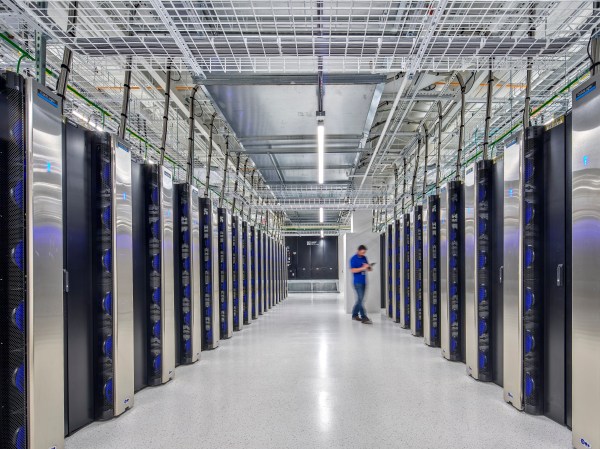Artificial intelligence is transforming not just business operations but also business management. AI-powered solutions are being quickly adopted across all sectors including the technology sector itself. Here is a quick guide to what you need to know about the use of artificial intelligence in data center management.
Understanding artificial intelligence
Artificial intelligence (AI) is a branch of computer science that focuses on creating systems or algorithms capable of performing tasks that typically require human intelligence. These tasks include problem-solving, decision-making, understanding natural language, learning from experience, and recognizing patterns.
AI systems are designed to mimic cognitive functions such as reasoning, learning, and problem-solving. They often use techniques such as machine learning, deep learning, natural language processing, and computer vision.
In business, AI is used to develop systems that can autonomously analyze data, make decisions, and adapt to new situations without human intervention. This enables machines to perform tasks more efficiently and effectively than traditional programmed algorithms. It therefore reduces the workload on human staff and hence leaves them with more time to concentrate on value-added tasks.
Understanding data centers and data center management
Data centers are facilities used for storing, processing, and/or distributing data. Most data centers are built on a large scale and process large volumes of data. Some data centers are designed on a small scale and used for localized data processing.
Data center management involves overseeing the operation, maintenance, and optimization of these facilities to ensure that they perform efficiently and reliably. Effective data center management is crucial for maximizing uptime, minimizing downtime, optimizing resource utilization, and ensuring data integrity and security.
Use cases for artificial intelligence in data center management
A lot of data center management consists of relatively simple routine tasks. These are perfect candidates for automation in general and AI-fuelled automation in particular. As a result, much of the use of artificial intelligence in data center management relates to delegating these kinds of tasks to machines.
Here are five specific examples of use cases for artificial intelligence in data center management.
Predictive maintenance
AI can analyze historical data on equipment performance and environmental conditions within the data center to predict potential hardware failures before they occur. By identifying patterns and anomalies, AI-driven predictive maintenance helps prevent downtime and minimize the risk of critical system failures.
Resource optimization
AI algorithms can dynamically allocate computing resources such as CPU, memory, and storage based on real-time demand and workload patterns. By optimizing resource utilization, AI-driven resource allocation ensures efficient performance and scalability while minimizing costs.
Workload orchestration
AI-based workload orchestration platforms can automate the deployment, scaling, and management of applications and services within data centers. By intelligently scheduling and prioritizing workloads based on performance requirements and resource availability, AI-driven workload orchestration improves efficiency, agility, and responsiveness to changing business demands.
Energy management
AI techniques like machine learning can optimize energy consumption within data centers by analyzing data on power usage, temperature, and workload characteristics. AI-driven energy management systems can identify opportunities for energy savings, such as adjusting cooling systems or optimizing server power states, to reduce operational costs and improve sustainability.
Security monitoring
AI-powered security solutions can detect and respond to potential security threats in real time by analyzing network traffic, system logs, and user behavior patterns. Using techniques like anomaly detection and behavioral analysis, AI-driven security monitoring systems can identify suspicious activities and mitigate security risks to protect sensitive data and infrastructure.
Best practices for implementing artificial intelligence in data center management
Here are five best practices for successfully implementing artificial intelligence in data center management.
Data quality and accessibility
Ensure high-quality, well-structured data is readily accessible for AI algorithms. Data should be collected from diverse sources within the data center, including hardware sensors, monitoring tools, and log files.
Model training and validation
Use robust machine learning techniques to train AI models on historical data sets representative of typical data center operations. Validate models using separate test data sets to assess their accuracy, generalization, and performance metrics. Continuously refine and update models as new data becomes available to maintain optimal performance.
Scalability and performance
Design AI-driven solutions with scalability and performance in mind to handle the scale and complexity of modern data center environments. Employ distributed computing frameworks and parallel processing techniques to process large volumes of data efficiently and execute complex AI algorithms in real time.
Explainability and transparency
Prioritize transparency and interpretability in AI-driven decision-making processes to facilitate understanding and trust among data center operators. Implement techniques for model explainability, such as feature importance analysis and model visualization, to provide insights into how AI algorithms arrive at their predictions or recommendations.
Integration with existing infrastructure
Seamlessly integrate AI capabilities into existing data center management tools and workflows to enhance operational efficiency and minimize disruption. Leverage APIs and standard protocols for interoperability with monitoring systems, automation platforms, and orchestration tools. Foster collaboration between data center staff and AI developers to ensure smooth adoption and integration of AI technologies.







